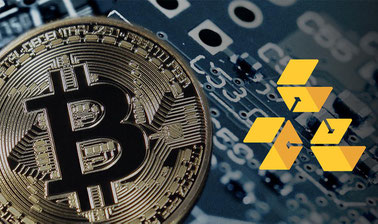The Advantages of Bitcoin Mixer for Anonymous Cryptocurrency Transfers
Bitcoin mixers, also known as Bitcoin tumblers, are tools that allow users to obfuscate the origin and destination of their Bitcoin transactions, providing an additional layer of privacy and anonymity. As cryptocurrencies like Bitcoin gain widespread use, ensuring transaction privacy becomes increasingly crucial for users concerned about their financial security. Bitcoin mixers serve this need by mixing funds from multiple users into a large pool, making it extremely difficult for anyone to trace individual transactions back to their original source. One of the primary advantages of using a Bitcoin mixer is enhanced privacy. This means that if someone knows the address of a wallet involved in a transaction, they can potentially trace the flow of funds to that wallet and gain insights into its transaction history. This could expose sensitive financial information about individuals or businesses, which is especially problematic for those who value discretion. Bitcoin mixers address this issue by breaking the connection between the sender and recipient addresses, ensuring that the transaction is much harder to trace.

Another benefit of using a Bitcoin mixer is the protection it provides against surveillance. With blockchain analytics tools becoming more sophisticated, there is growing concern about how third parties, including governments or hackers, may monitor Bitcoin transactions. A Bitcoin mixer makes it more difficult for these entities to track the flow of funds, preserving the user’s anonymity and safeguarding their financial activities from external scrutiny. For people living in jurisdictions with heavy surveillance or restrictive financial regulations, this increased privacy is particularly important for avoiding potential legal or political repercussions. Bitcoin mixers also provide users with more control over their financial privacy. While Bitcoin’s decentralized nature ensures that users retain full control of their assets, the public visibility of transactions can still compromise personal security. By using a mixer, users can ensure that their Bitcoin transactions do not reveal their identity or their financial patterns. This feature is particularly useful for those who wish to avoid having their spending habits exposed or being targeted by hackers or malicious actors who could exploit such information.
Whir Btc tumbler can also be used to increase the security of a user’s assets. In some cases, the process of mixing funds can make it harder for hackers or thieves to steal cryptocurrency, as the mixed transactions do not follow a predictable pattern. The added layer of complexity in tracking these mixed funds makes it significantly more difficult for malicious parties to target specific transactions. This added security is crucial for protecting digital assets from theft, especially as cybercrime becomes an ever-present concern in the digital finance world. Despite the advantages, it is important to note that Bitcoin mixers are not without controversy. Some countries have regulations that limit or discourage their use, as they may be associated with illicit activities such as money laundering or terrorism financing. However, for legitimate users who prioritize privacy and security, Bitcoin mixers remain a valuable tool for maintaining financial anonymity and safeguarding personal information in the increasingly digital world of cryptocurrency. Bitcoin mixers offer a range of advantages, from enhanced privacy and protection against surveillance to increased security and control over financial information.





 Hiring professional roof cleaning services brings numerous benefits. Experts have the right equipment, techniques, and knowledge to safely and effectively clean your roof. They use specialized cleaning solutions that are not only effective at removing dirt and algae but also gentle enough to protect your roof’s materials. Unlike DIY methods, which may involve harsh chemicals or excessive pressure washing, professionals employ soft washing techniques that ensure your roof is cleaned without damage. Moreover,
Hiring professional roof cleaning services brings numerous benefits. Experts have the right equipment, techniques, and knowledge to safely and effectively clean your roof. They use specialized cleaning solutions that are not only effective at removing dirt and algae but also gentle enough to protect your roof’s materials. Unlike DIY methods, which may involve harsh chemicals or excessive pressure washing, professionals employ soft washing techniques that ensure your roof is cleaned without damage. Moreover,